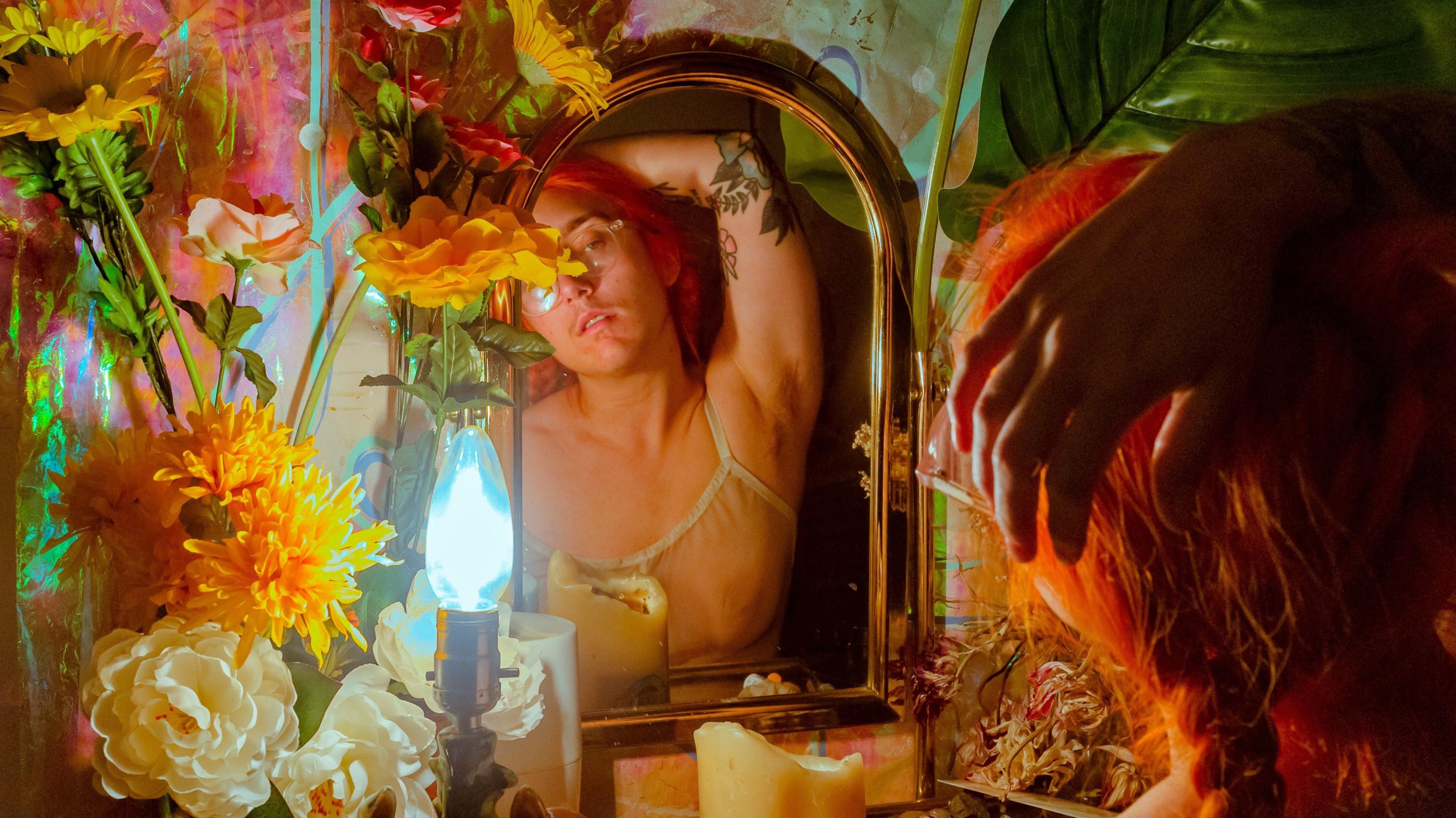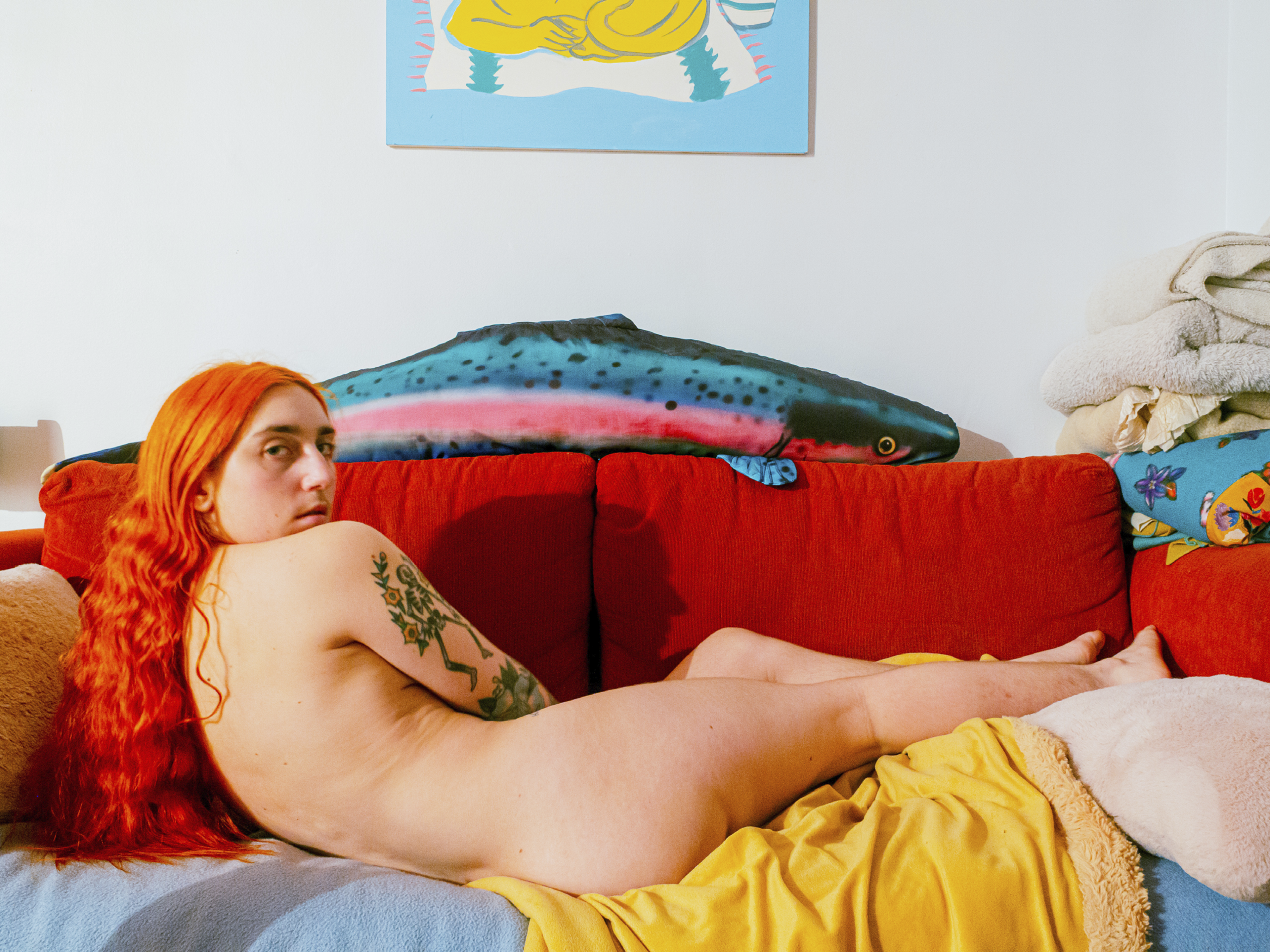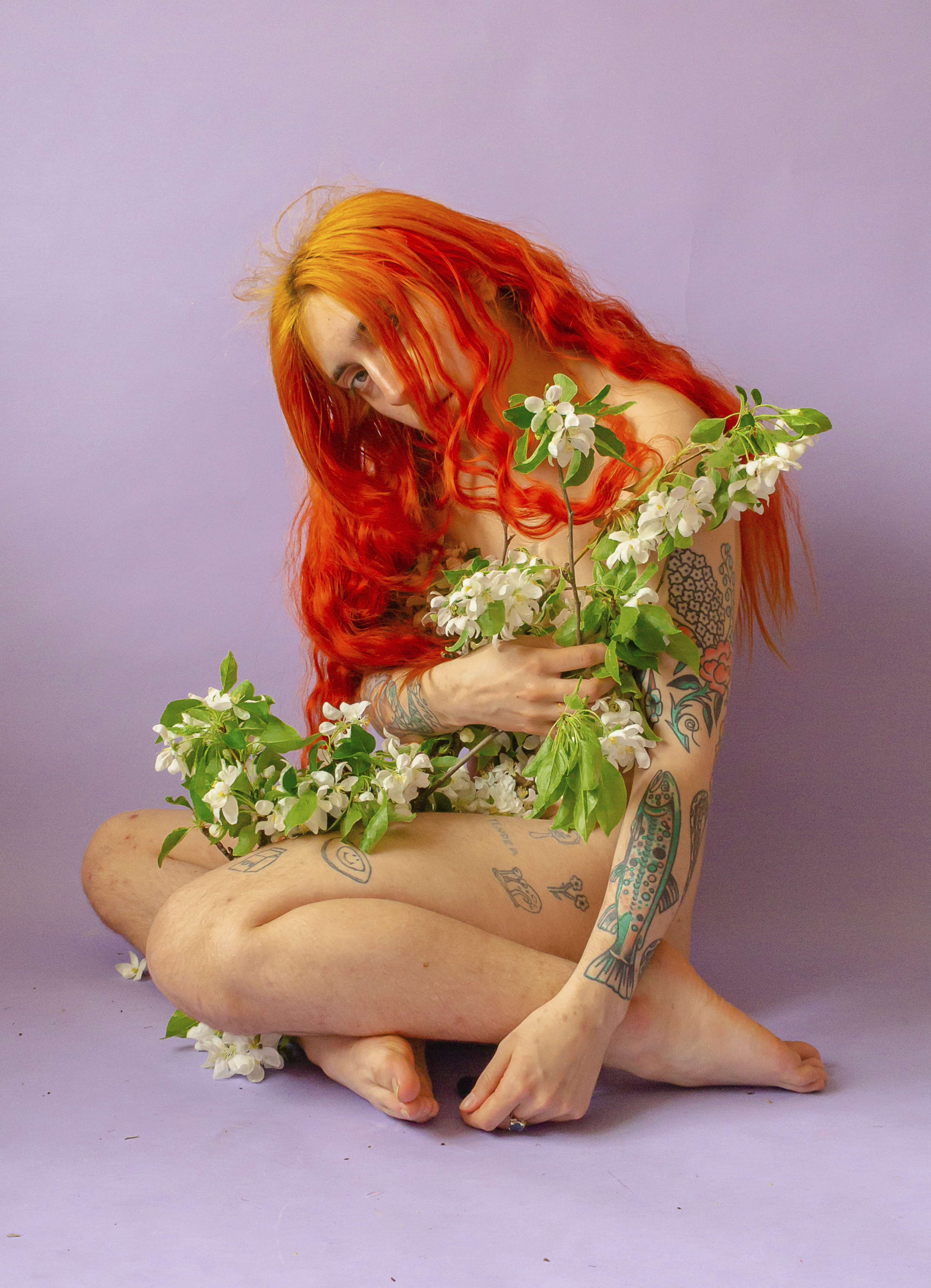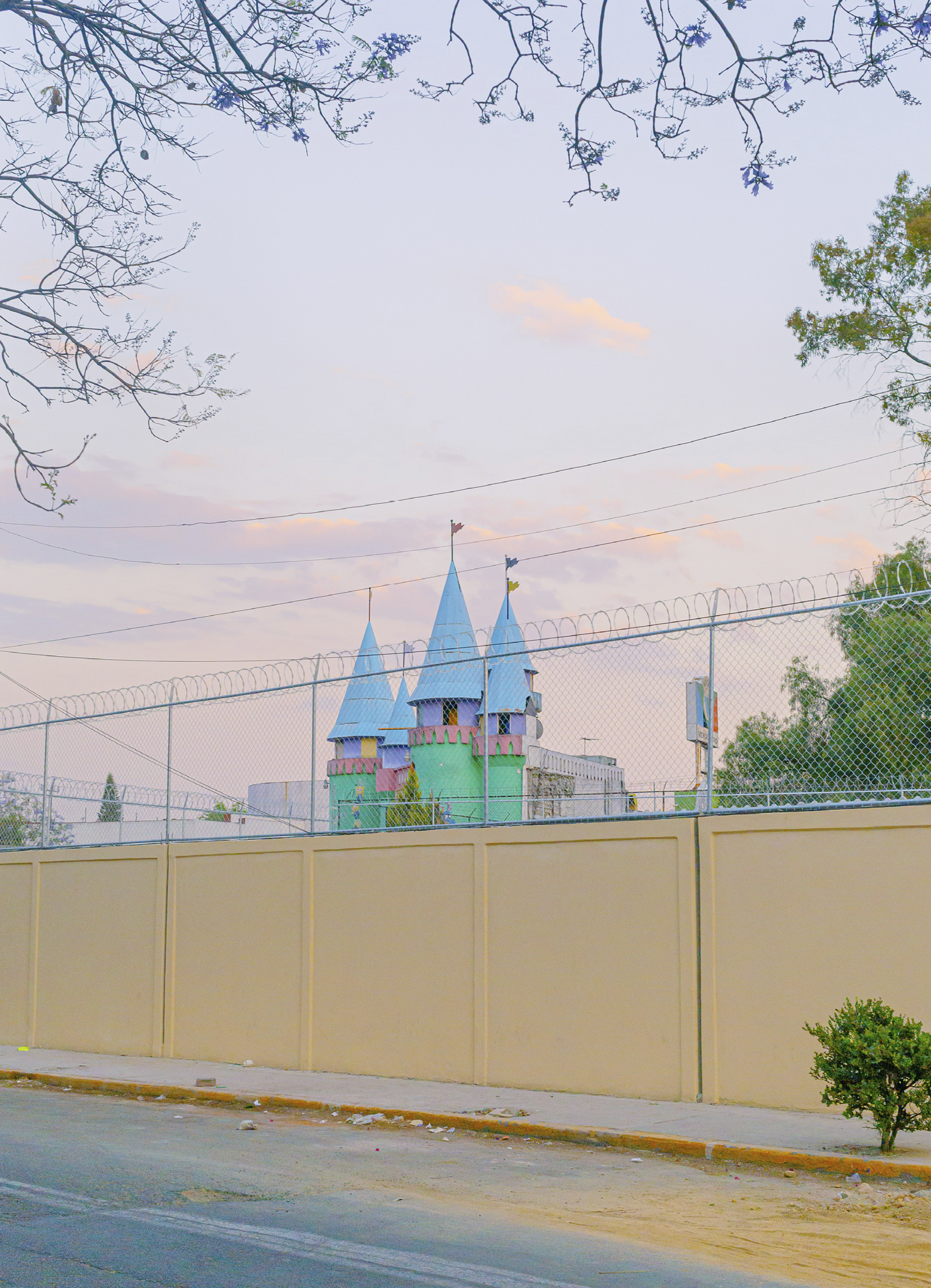Laurence Philomène
Puberty

Puberty is a photographic memoir that chronicles two years of Laurence’s life as they began hormone replacement therapy (HRT) as a non-binary transgender person. The project combines surreal colors and mundane environments to document the daily moments and subtle physical changes occurring during their transition. Looking at HRT as a process without a fixed end goal, Puberty challenges viewers to consider identity beyond binaries.



ABOUT THE EXHIBITION
Since January 2019, Laurence Philomène has been documenting the changes testosterone generates in their body and moods through daily photographs. The resulting images are simultaneously staged and candid, created by setting up a tripod in their home as they go about their routines. Set in highly- saturated domestic spaces, these photographs look at the intimate details of transition which are seldom represented and rarely accessible.
Growing up, the only access Philomène had to queer history was through photography books they borrowed at the library. In lieu of institutional recognition, a lot of our history as marginalized folks is passed down through self-documentation as a means of reclaiming our narrative, which is something that has always fascinated them.
“I think of the freedom to create our own story as an integral part of embodying queerness.”
Having dedicated their practice to documenting non-binary lives, Puberty allows Philomène to dig deeper into what it means to have autonomy over our stories as marginalized individuals. They work with the hope of providing representation for and solidarity with future generations of queer and trans individuals as they navigate both personal joys and institutional hardship and erasure.
“I work with the hope of providing representation for and solidarity with future generations of queer and trans individuals as they navigate both personal joys and institutional hardship and erasure. ”
ABOUT THE ARTIST
Laurence Philomene is a non-binary artist from Montreal who creates colorful photographs informed by their lived experiences as a chronically ill transgender person. Their practice celebrates trans existence and studies identity as a space in constant flux via highly-saturated, cinematic, and vulnerable images.
Gaining an interest in image-making in their teenage years, Laurence has since used photography as space to both experiment with and document identity as it comes to be expressed through gender. Using photography as a process of mutual [and self] care, their work aims to humanize identities that have been historically marginalized, and act as a love letter to their community.